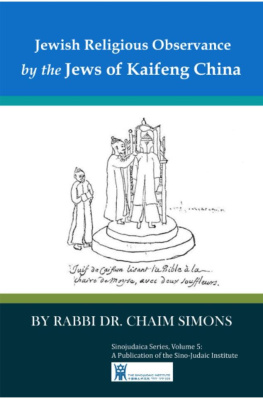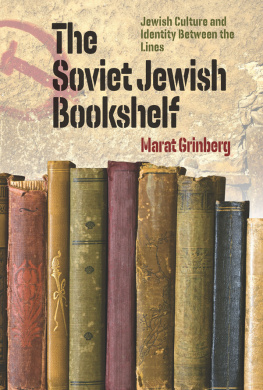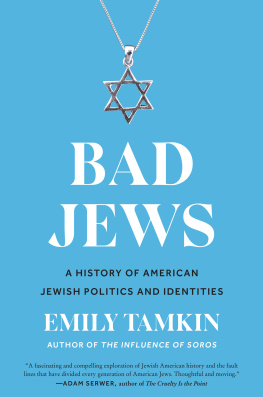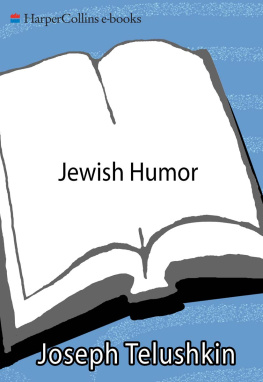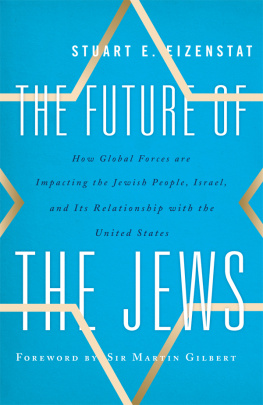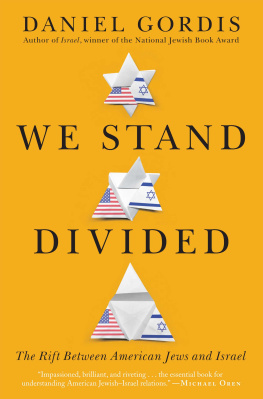THE LITERARY MAFIA
THE LITERARY MAFIA
Jews, Publishing, and Postwar American Literature
Josh Lambert

Published with assistance from the Kingsley Trust Association Publication Fund established by the Scroll and Key Society of Yale College, and from the Mary Cady Tew Memorial Fund.
Copyright 2022 by Josh Lambert.
All rights reserved.
This book may not be reproduced, in whole or in part, including illustrations, in any form (beyond that copying permitted by Sections 107 and 108 of the U.S. Copyright Law and except by reviewers for the public press), without written permission from the publishers.
Excerpts from the letters of Lionel Trilling, copyright 19521963 by Lionel Trilling, are used by permission of The Wylie Agency LLC. Quotations from unpublished writing by Alfred A. Knopf and Blanche Knopf are used by permission of Alice L. Knopf. The excerpt from Note in Lieu of a Suicide by Donald Finkel, from Simeon (Atheneum 1964), is reprinted with permission of the Estate of Donald Finkel. Permission to quote from the unpublished work of Ann Birstein is granted by the Estate of Ann Birstein and Cathrael Kazin, Executor.
Yale University Press books may be purchased in quantity for educational, business, or promotional use. For information, please e-mail (U.K. office).
Set in Alternate Gothic and the Yale typeface by Integrated Publishing Solutions, Grand Rapids, Michigan.
Library of Congress Control Number: 2021948507
ISBN 978-0-300-25142-5 (hardcover : alk. paper)
A catalogue record for this book is available from the British Library.
This paper meets the requirements of ANSI/NISO Z39.48-1992 (Permanence of Paper).
To my parents and my children
Perhaps some smart-ass fellow should write a book called The Literary Mafia.
ROBERT DEMARIA SR. to Ann Birstein, November 30, 1976
CONTENTS
CHAPTER 1.
Jews Editing Jews: Literary Gatekeeping among Landslayt
CHAPTER 2.
Teachers and Students: On Lionel Trillings Blurbs
CHAPTER 3.
Women and Shitty Media Men: Whisper Novels, 19581984
CHAPTER 4.
Parents and Children: Literary Inheritances and Nepotism, 19592012
CONCLUSION:
We Need More Literary Mafias
THE LITERARY MAFIA
INTRODUCTION
The Idea of a Literary Mafia
By the middle of the 1960s, the beat novelist Jack Kerouac, whose On the Road (1957) had made him a national celebrity, was disaffected, increasingly isolated from his friends, and drinking heavily. He knew whom to blame for his problems. A posthumous profile in Esquire explained that in the years leading up to his death in 1969, he would rant for hours about the Jewish literary mafia that he believed had placed a moratorium on publication of his work.
A Jewish literary mafia? Really? Could that be anything but the paranoid, anti-Semitic fantasy of a washed-out, resentful alcoholic? Surprisingly, other writers as different from Kerouac and from each other as Mario Puzo and Katherine Anne Porter expressed similar concerns, though they focused less on the literary mafias persecution of their own work and more on its deleterious effects on U.S. literary culture in general. In a 1968 article, Puzo half jokingly suggested that two literary Mafia gangsa Jewish one and a southern onewere controlling those juicy Guggenheim and Ford grants, ensuring that independent, working writers had no chance to receive them.
Truman Capote, whose success with In Cold Blood (1966) had augmented his own literary celebrity, talked about a Jewish literary mafia more than anyone else. He explained the problem succinctly in a 1968 interview: The Jewish Mafia in American letters... is a clique of New Yorkoriented writers and critics who control much of the literary scene through the influence of the quarterlies and intellectual magazines. All these publications are Jewish-dominated and this particular coterie employs them to make or break writers by advancing or withholding attention. As Kerouacs comment suggests, though, other observers felt that the literary mafia had power over book publishers themselves, while Puzo was more concerned about the literary mafias control of fellowships and prizes.
Still other observers saw Jewish readers and book buyers as the source of the problem. In a 1961 piece in the New Leader, an editor at McGraw-Hill and
This idea about a Jewish mafia in U.S. publishing circulated at least into the 1980s.
Yet a number of writers and editors who were themselves American Jews
Meanwhile, it was a prolific critic and experimental writer named Richard Kostelanetz, also Jewish, who produced the most expansive and detailed case against what he called the literary mob in a 1974 polemic, The End of Intelligent Writing: Literary Politics in America.what would be neglected or wiped out (31), and he cites its particularly comprehensive authority in upper-middlebrow political and literary criticism (125). Kostelanetz lists 144 writers and editors by name as members of this literary mob (8486), and though he often qualifies his critiques in one way or anothersuch as when he says that the literary establishments that concern him are not conspiracies but chains of interpersonal relationship based upon common sentiment and mutual interest (3)he also insists that one definition of a conspiracy is that all parties act toward a common goal, whether by design or by inadvertent cooperation that is only retrospectively apparent (xvi) and that to protest that the New York literary mob is not a conspiracy does not prevent units of it from behaving like one (99). The upshot of Kostelanetzs extensive, detailed critique is that this U.S. Jewish literary mob will have deleterious effects on what is published: such a concentration of literary power is ultimately inimical to... the future of intelligent writing (126).
Notwithstanding the sources and evidence that Kostelanetz marshaled, and some respectable scholars who have relied on and cited his work, critics dismissed his accusations and other critiques of a Jewish literary mafia as the fruits of envy or, at best, as resulting from misunderstandings about the ways in which writers, publishers, and critics go about their business.
Other observers of the literary scene found this all silly and misguided. In the late 1960s, Gordon Lish and Curt Johnson were both editors of small literary magazines produced far from New YorkLishs was Genesis West, which he published in Palo Alto, and Johnsons was December, published in Chicagoand in their correspondence they treated the idea of a Jewish literary mafia as something of a joke. Discussing one publishing executive, Harvey Plotnick, the president of Regnery Publishers, Johnson, who was not Jewish, wrote to Lish, who was, Yes, [Plotnick] is a Yid.... Didnt you ever hear about the conspiracy which goes back to the Protocols,... this world-, perhaps universe-wide conspiracy of Jews (which is what Yids are also called) which, in secret, has taken over everything[?]
Johnson thought the idea of a Jewish literary conspiracy was laughable, and the hyperbolic language of Capote, the drunken ranting of Kerouac, and the fierce polemic of Kostelanetz are not entirely reliable sources of information on the mechanics of U.S. publishing and the history of American literature. But, like other resilient anti-Semitic myths that distort genuine historical developments, these critiques of a Jewish literary mafia were not invented out of whole cloth or at random. They reflect, in their misleading way, a major transformation that had been taking place in U.S. literary culture, about which careful scholars and observers of that field have, to this day, had surprisingly little to say.
Next page

